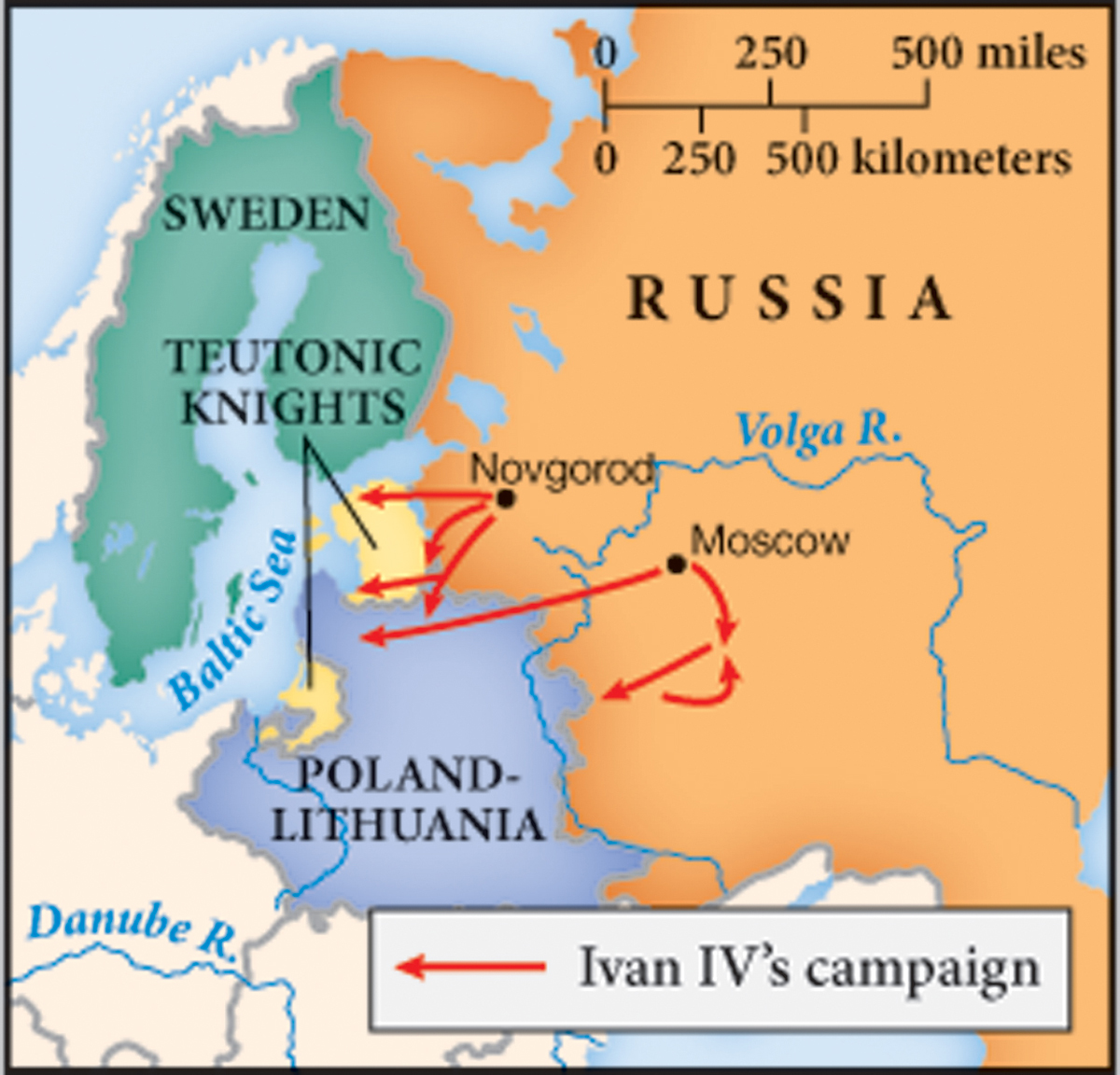The Clash of Faiths and Empires in Eastern Europe
Printed Page 481
Important EventsThe Clash of Faiths and Empires in Eastern Europe
In the east, the most contentious border divided Christian Europe from the Islamic realm of the Ottoman Turks. Recovering quickly from their defeat at Lepanto in 1571, the Ottomans continued their attacks, seizing Venetian-held Cyprus in 1573. In the Balkans, rather than forcibly converting their Christian subjects to Islam, the Turks allowed them to cling to the Greek Orthodox faith. They welcomed Jews expelled from Spain, and Jews soon made up 10 percent of the population of Istanbul.

The Muscovite tsars officially protected the Russian Orthodox church, which faced no competition within Russian lands. Building on the base laid by his grandfather Ivan III, Tsar Ivan IV (r. 1533–1584) stopped at nothing in his endeavor to make Muscovy (the grand duchy centered on Moscow) the heart of a mighty Russian empire. Given to unpredictable fits of rage, Ivan murdered his own son with an iron rod during a quarrel. His epithet “the Terrible” reflects not only the terror he unleashed but also the awesome impression he evoked. Cunning and cruel, Ivan came to embody barbarism in the eyes of Westerners.
REVIEW QUESTION How did state power depend on religious unity at the end of the sixteenth century and start of the seventeenth?
Ivan initiated Russian expansion eastward into Siberia, but two formidable foes blocked his plans for expansion westward: Sweden (which then included much of present-day Finland) and Poland-Lithuania. Poland and the grand duchy of Lithuania united into a single commonwealth in 1569 and controlled an extensive territory. After Ivan IV died in 1584, a terrible period of chaos known as the Time of Troubles ensued, during which the king of Poland-Lithuania tried to put his son on the Russian throne. In 1613, an army of nobles, townspeople, and peasants finally expelled the intruders and put on the throne a nobleman, Michael Romanov (r. 1613–1645), who established an enduring new dynasty.